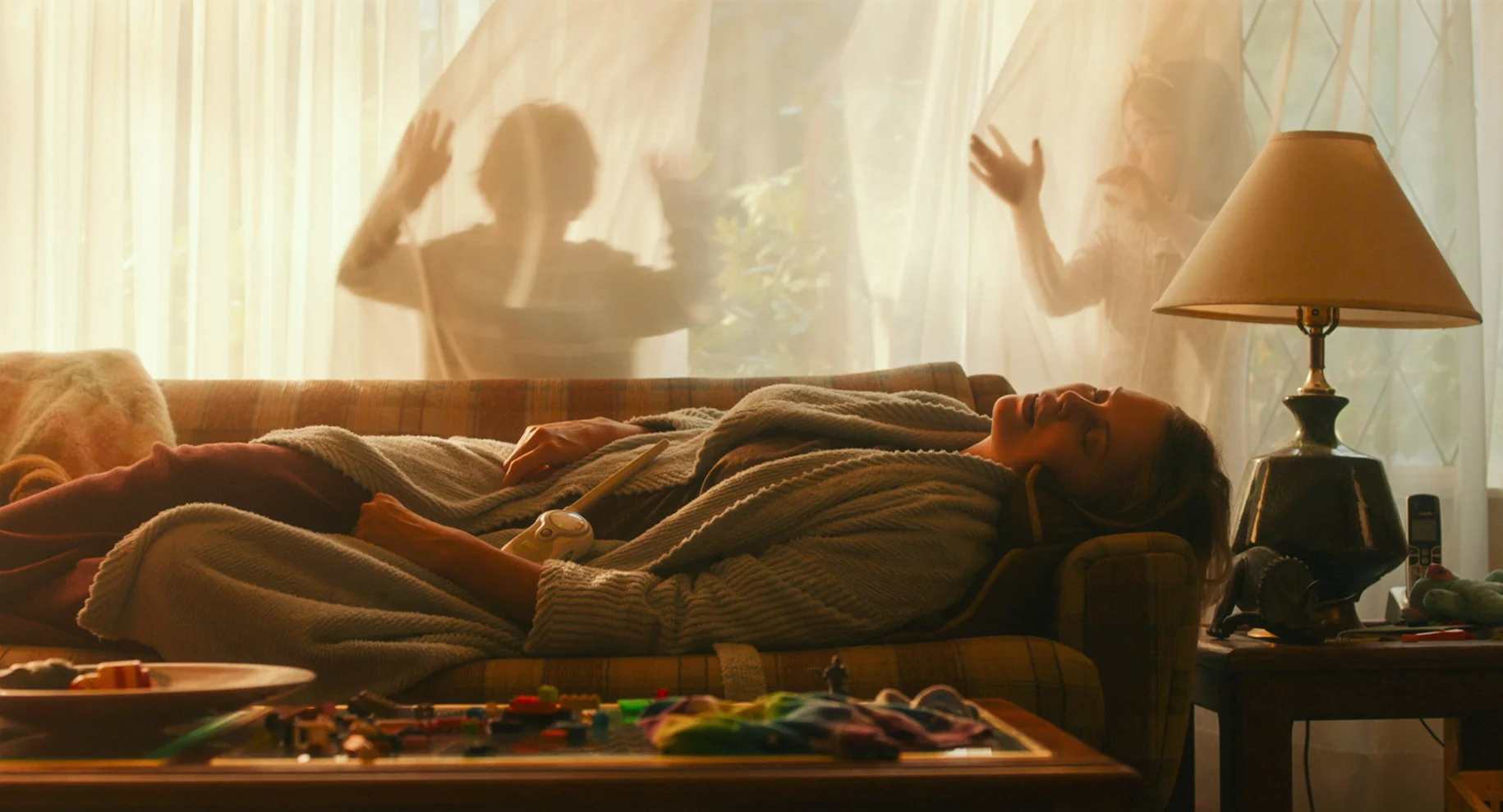A Sorta Fairytale: a 'Tully' Film Review
by Will Lindus
Marlo (Charlize Theron) is exhausted. She has two young children already - one of which with special needs which impact his behavior at school - and she is pregnant with her third child. Sure, her husband Drew (Ron Livingston) loves her and supports her, but between the extra hours he has been putting in at work and his love of late night video games, Marlo isn’t getting the help she needs. And when baby three finally comes along, all of these pressures plus the sleep deprivation from midnight diaper changes and 3 a.m. feedings has taken it toll on her.
This is the world of Tully, a world instantly and knowingly recognizable to anyone who has ever had to sacrifice sleep, entertainment, or temporary sanity to raise a child. This is the third collaboration from writer Diablo Cody and director Jason Reitman, the pair that created Juno back in 2007 and Young Adult in 2011, which is important to know because Tully strives to blend the same combination of realistic dramatic situations with hyper-realistic dialogue that characterized those films. That said, Diablo Cody shows a bit more restraint with her script here, which shows her growth as a writer and which matches the more mature and adult themes of the story. The conversations are razor sharp, but never distractingly so; the witticisms land and bolster the story instead of distracting from it.
Marlo’s life changes when her brother Craig (Mark Duplass) offers to pay for a night nanny to help alleviate some of the burden. At her breaking point, Marlo agrees, and along comes Tully (Mackenzie Davis) to help make Marlo’s life better. This marks a subtle and subdued tonal shift for the film, occurring at that blessed moment when Tully rings the doorbell and enters Marlo’s life. Present still is the blend of gravitas and wit, but also added is a hint of magical realism. Tully is a Mary Poppins figure, sans umbrella, who brings energy, restfulness, and joy to Marlo’s life. No, there aren’t any dancing chimney sweeps or cartoon penguins, but Tully’s understanding of Marlo’s needs borders on the surreal, and it is this connection that gives the film its spark of life.
The cast is pitch perfect. Charlize Theron is no stranger to playing against type, with 2003’s Monster earning her high praise for the physical transformation the role demanded. With Marlo, Charlize Theron allows herself to be vulnerable, in her exhaustion, in her body, and in her frustrations with the path her life has taken. Theron allows her body to be shot in the least flattering ways possible, and does so without her added body weight feeling like a stunt.
Mackenzie Davis is almost like a fairy godmother as the titular Tully, demonstrating a poise and a confidence and a patience that feels refreshing yet otherworldly. Where can I find a Tully to make my own life better? As we learn more about Tully, her eternally positive demeanor begins to make more and more sense, but it is this inscrutable optimism that makes her arrival in Marlo’s life so welcome and so special. Most importantly, though, is that Theron and Davis have genuine chemistry with one another, so much so that when the credits roll and you’ve had a moment to absorb this film, it is easy to see why both characters came to find and value one another.
This doesn’t happen in a vacuum. To make a film like Tully work, it takes a pair of exquisite performances from a pair of dedicated actors, working from an effective script, and directed by a filmmaker who understands how to execute the vision of his project. Ron Livingston and the ever great Mark Duplass add immense value in their supporting roles, but make no mistake; this movie belongs to Theron and Davis.
Visually, Tully borrows from the more critically acclaimed family dramas of the now, including ‘Parenthood’ and ‘This is Us,’ creating a palette that never seeks the draw attention away from the characters, their conversations, and their struggles. Marlo and Drew’s home is always cast in shadow, accentuated by the fact that many of the scenes occur at night, with minimal lighting to create an atmosphere that feels at times oppressive and others slightly magical, like walking through the woods at night (for those so inclined).
It isn’t perfect, though. The third act hinges very heavily on very specific plot elements (omitted here to keep your viewing experience spoiler-free), and once the film telegraphs those elements, it seems to stretch on a bit longer than is necessary. With a 96 minute run time, this isn’t the worst of sins; still, a bit of tweaking to the pacing and the impact of those final minutes might have elevated Tully. As the film hits its climax, it aims for an emotional payoff that feels unearned compared to the smaller stakes that play out more effectively through the rest of the film.
When it is at its best, Tully is a showcase of two women recognizing themselves in each other. While sometimes this type of reflection can come with a tinge of regret, it can also help connect oneself to either their past or their future, with the person they used to be or strive to become. In a world that seeks to suppress this type of personal development by drowning it in an ocean of daily stressors, there’s something cathartic about engaging with a sorta fairytale aimed at the adult condition, a fairytale that tells us that while the colors may feel muted now, it’s never too late to recapture life and begin to see color again.
Bottom Line: Tully is an excellent film that features an entirely relatable character enduring a very common set of problems and the help that arrives to help save her from herself. From performances to script, everything in Tully works incredibly well, making this an easy film to recommend, especially for anyone who has ever felt overwhelmed by the minutiae of modern life.
4 out of 5 Bear Paws


